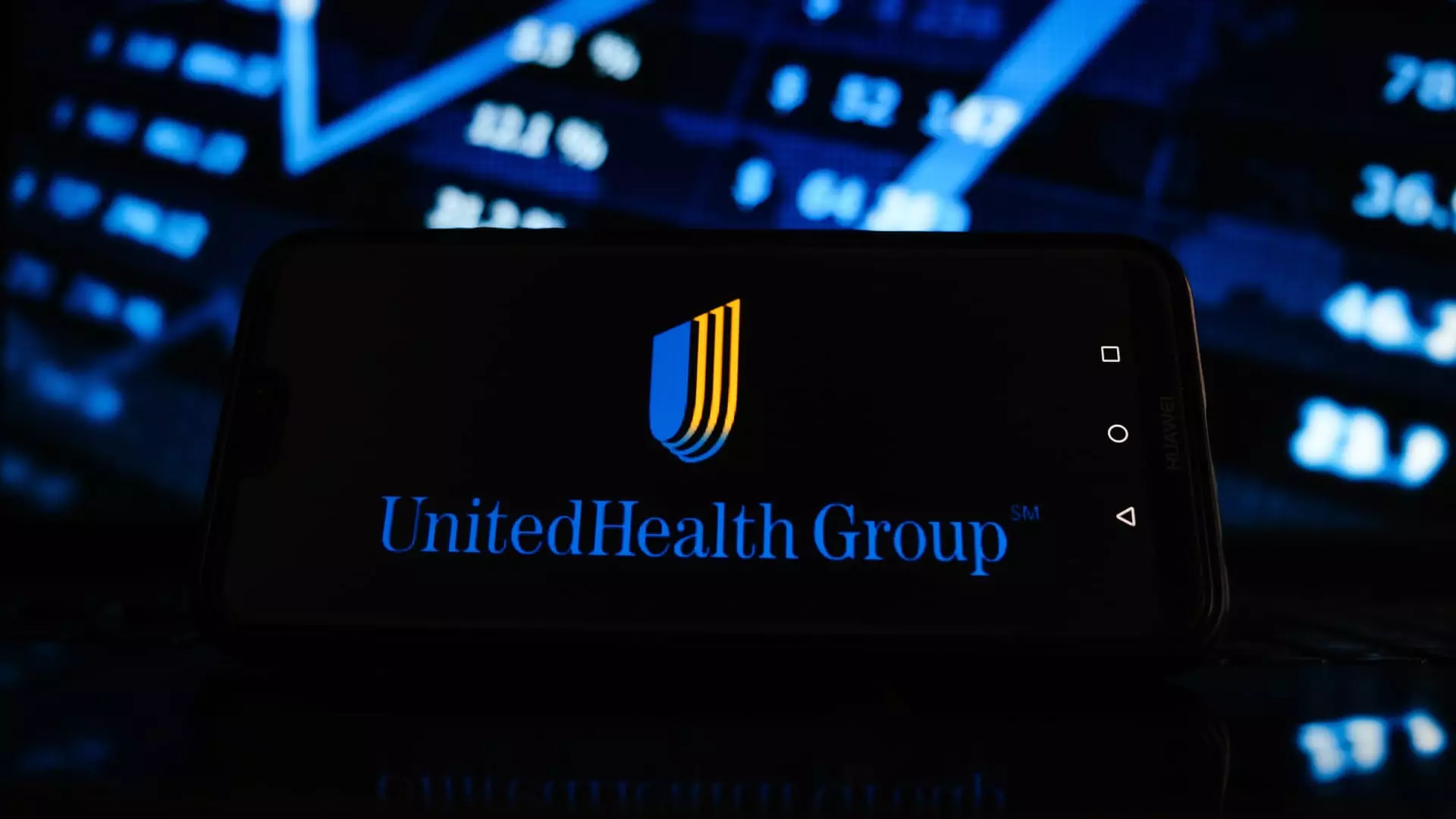The stock market operates in cycles of frenzy and despair, and right now, UnitedHealth’s shares are painting a vivid picture of despair. As major stock indices soared, buoyed by tariff agreements between the U.S. and China, one could not miss the striking absence of UnitedHealth, which has seen its shares plummet to a five-year low. This isn’t just a passing storm—it’s a wake-up call for investors who might misinterpret market highs as safe havens for their money. In a week where the S&P 500 claimed a remarkable 5.3% increase, the plight of UnitedHealth stands out harshly, highlighting the critical distinction between fleeting gains and sustainable investments.
The Heavy Weight of Criminal Investigations
The catalyst for UnitedHealth’s dramatic decline appears to be the encroaching shadow of a criminal investigation led by the Department of Justice regarding potential Medicare fraud. When stock prices tumbled by 23% in just one week, investors couldn’t ignore the likelihood that this scandal could have lasting ramifications. A company embroiled in criminal inquiries is not only under the microscope of regulators but increasingly vulnerable to the perceptions of the market. This kind of reputational damage can sow distrust among stakeholders and consumers alike, further exacerbating financial losses and market volatility. In this age, transparency and trust are paramount in the healthcare sector, and to see such a prominent figure in turmoil raises serious concerns regarding corporate governance and accountability.
The Perils of Overselling—A Double-Edged Sword
It would be easy to dismiss UnitedHealth’s low relative strength index (RSI)—a mere 14.9—as an opportunity for a savvy investor to swoop in and buy low. However, falling into this trap overlooks the bigger picture. The RSI indicates that the stock is deeply oversold, indeed, at a level resonant with those seen during the 2008 financial crisis. Yet, relying on such metrics can prove deceptive, especially in the face of emerging negative headlines that threaten to further decimate stakeholder confidence. For example, a share buyback from company insiders may suggest faith in the firm’s future, but if the looming specter of regulatory compliance issues remains unresolved, what good will this faith yield? Investing is as much about timing as it is about understanding the fundamental health of a company, and right now, UnitedHealth’s future appears clouded with uncertainty.
Corporate Missteps and Their Financial Toll
One cannot overlook the recent corporate misstep where UnitedHealth had to downgrade its annual profit forecasts due to unexpected spikes in medical costs. A 50% drop in stock value over the last month is a dire signal—a signaling that market analysts and investors alike cannot afford to ignore. The healthcare landscape is fraught with competitive pressures and rising operational costs, but a misplaced strategy can severely cripple even a giant like UnitedHealth. The implications run deeper than just declining stock prices; they affect employee morale, customer satisfaction, and the company’s ability to innovate. At a time when healthcare companies should be leaning into transparency and accountability, UnitedHealth appears to be operating in the opposite direction.
Lessons from the Current Landscape
The tale of UnitedHealth serves as a cautionary narrative about the complexities of stock market investments, particularly in volatile sectors like healthcare. While the broader market may rejoice in gains driven by geopolitical maneuvers, the fortunes of one company can shift dramatically overnight, driven by mismanagement or external scrutiny. An informed investor needs to look beyond mere financial indicators; they must also understand the context behind those numbers, dissecting not just the balance sheets but also the narrative of a company’s operations.
In an ever-evolving investment world, remaining critically aware of potential headwinds, including regulatory issues and operational inefficiencies, is vital. The case of UnitedHealth is a clarion call for vigilance among investors; in moments of apparent calm, the undercurrents of deceit or incompetence can pose larger threats than any transient market rally.


Leave a Reply